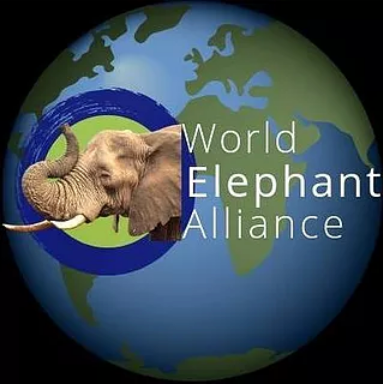This is a guest post by Steve Koyle of Elephant Care Unchained.
The captive elephant is a tragic story. Throughout my 20 years of caring for elephants I’ve seen and witnessed a lot of pain and suffering. More so since I’ve established Elephant Care Unchained in 2016. Over my 20 years of working for elephants I’ve developed a special skillset that has allowed me to improve the captive elephant life regardless of situation or environment. One skill that I’ve become globally recognized for is footcare. You can tell a lot about the elephant simply by examining the feet. If the elephant has healthy feet, it probably has a healthy environment. Ultimately, the elephants are the easy part, the challenge is the people in charge of caring for them.
Throughout this journey the hardest part is earning peoples trust to gain access to elephants. It’s not an easy task, it’s kind of like a travelling salesman going door to door. In my case, going from elephant camp to temple to zoo to park to try to establish trust with the hope of helping elephants. There are many obstacles to overcome when working in native countries. First is the language barrier. As I travel anywhere in the world to help elephants (currently 6 countries) and try to explain a totally new concept of welfare and compassion is hard enough, especially in a different language. Communicating is
difficult and things get lost in translation. I believe that they think “What does a white guy from the west know about elephants?”
Second is education, most of the mahouts are uneducated and abuse substances. When I explain a “simple” concept either enrichment or substrate that will help improve welfare the message is lost. “If you don’t think anything is wrong then why change it?” For example, elephants’ displaying stereotypic behaviors is just “normal” to most, so in their mind “why change it?”

Third is understanding and working within the culture. Unfortunately, in many cultures elephants are exploited and mistreated under the disguise of culture. How can you help without criticizing the culture? The moment you criticize or insult culture you have no chance of helping. It’s about trying to be more understanding and earning trust. Another cultural obstacle is that, so often us westerners are quick to criticize without really knowing what is going on. This makes helping more difficult since most of the mahouts’ experience with westerners is either to hug and kiss the elephants or publicly criticize their care. Both of which are not helpful to the elephant or their welfare. Understanding the mahout’s situation is another difficult obstacle. Many mahouts are
paid a minimal salary and therefore use the elephant to make money. In doing so, they usually put the elephant into an unnatural and unsafe environment which is very dangerous for them and harmful for the elephant. Elephants do in fact hurt and kill people. So, we must understand that it takes much more than hugs and kisses to care for them.
Lastly, teaching compassion is the extremely difficult. How do you do it? How do you make people care about the elephant as a living being with needs? It’s so emotionally draining to be out here fighting for elephants and improving their welfare. To see people beating and neglecting the elephants makes most days very hard. If only they would apply a few simple suggestions, life would be much easier for everyone involved. The reality is that until elephants’ stop being used as money machines and the cultures change their attitudes toward them. It’s going to be a long road to end the unnecessary suffering. It’s a road that I will forever be on fighting for elephants.



What a beautiful caring soul you have…Thank you for all you do for these gentle giants…🐘💕